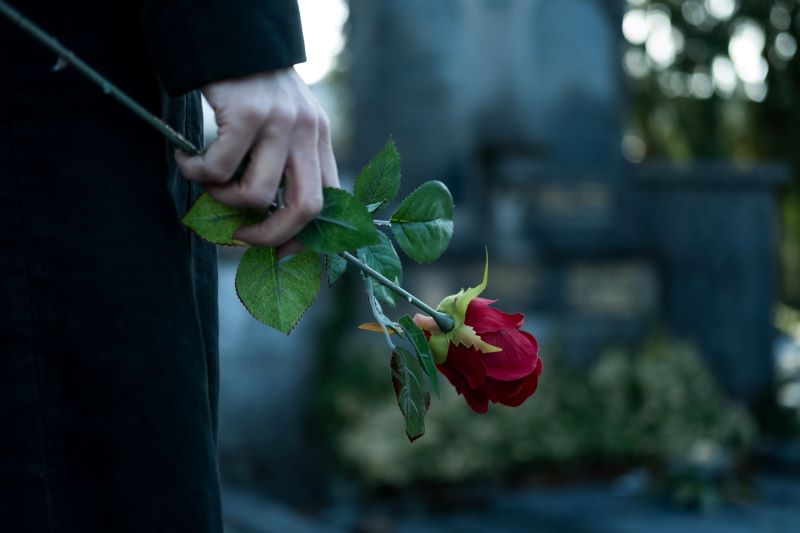Praise in the Prison
Sign up for a six month free
trial of The Stand Magazine!
And at midnight Paul and Silas prayed, and sang praises unto God … (Acts 16:25).
While ministering in Philippi, Paul, Silas, Timothy, and Luke caused quite a stir.
They were actually tolerated at first, but when Paul cast the demon out of the young possessed slave girl (16:18), causing her masters to lose their ability to exploit her for further gain (16:19), chaos quickly ensued.
The masters of the young lady dragged Paul and Silas before the magistrates and the people of the city and accused them of being troublemakers and introducing customs not allowed under Roman law.
Those masters didn’t really care about Roman customs, nor did they believe Paul and Silas were troubling the people; rather, they were angry their lucrative business had been destroyed.
Their goal then was to whip the crowd into a frenzy and convince the city rulers that the pesky evangelists must be dealt with.
Their plan worked.
The city magistrates commanded the Roman soldiers to strip the missionaries of their clothes and beat them with rods, to which they happily obliged and “laid many stripes upon them” (16:23).
This was no mild form of punishment. Beatings by Jewish officials were bad enough, but they were limited to administering no more than 40 stripes (Deuteronomy 25:3), and often gave 39 to be sure they didn’t violate their law (2 Corinthians 11:24).
The Romans, however, had no limit. They could beat their subjects without mercy and to within an inch of their lives.
This instance at Philippi is likely one of the times Paul wrote about in 2 Corinthians 11:25 when he said, “thrice was I beaten with rods,” and could have been one of the times he suffered “stripes above measure” (2 Corinthians 11:23).
As if the beatings were not bad enough, Paul and Silas were then cast into prison.
But a normal prison cell wouldn’t do. Instead, they were cast into the inner prison (16:24), or as A.T. Robertson described it, “… a veritable dungeon with no light or air save what came through the door when open.”
But there was more punishment yet to come. Once placed inside the inner prison, the Philippian jailer “made their feet fast in the stocks” (16:24).
Don’t get the idea that these were shackles with chains fastened to walls that would allow some movement, though that would be bad enough.
The Greek word for “stocks” referred to a log or timber that had holes in it for securing the ankles and wrists.
In this case, only the feet were put in the stocks, but they were put in in such a way that the legs were spread apart as a means to put the prisoner in an agonizing position to further torture them.
So picture Paul and Silas if you can. They’d been beaten mercilessly, cast into the darkness of the inner prison with no care given to their wounds, and placed in stocks that would only exacerbate the pain of their bloody and bruised backs.
It’s a difficult scene to imagine, but it’s important to consider because it makes what happens next all the more amazing.
After all they endured, “… at midnight Paul and Silas prayed, and sang praises unto God…” (Acts 16:25).
Is this the reaction you would expect from men who endured the punishment just described?
Knowing our human nature, it wouldn’t surprise us if we found them angry, bitter, cursing, and even doubting the love and plan of God.
Oliver Greene said,
“Think of the pain these men were suffering! Their backs were a mass of torn and bloody flesh from the beating they had just undergone. They were held almost immovable in the stocks in the cold, damp recesses of a Roman prison, without food and water, without any consideration for their physical comfort or wellbeing. But did they grumble? No.”
What did they do instead? They “… prayed, and sang praises unto God ….”
What a testimony!
I find myself agreeing with Kent Hughes when he said of their praise: “This was even more dramatic than the earthquake that would soon follow! Songs from the bowels of that miserable, vermin-infested pit? Yes, because those men’s heart realities exceeded their miserable circumstances.”
Have you ever considered what you might do in such a situation?
If we had endured what they had and been in that dungeon with them, feet in the stocks, would we have sung praises with them?
I’ve considered it many times, and I must confess it often troubles me when I wonder if I could display the kind of courage they did.
The truth is, I know in my flesh I’d be too weak, for “the spirit indeed is willing, but the flesh is weak” (Matthew 26:41).
I have to remind myself that the same Holy Spirit who enabled Paul and Silas to sing praises from the prison cell, can and will enable us if we will let Him.
We may never endure the type of prison experiences as the saints of old. (Although the direction of our culture makes it more possible than ever in this nation.)
But we all certainly experience types of prison experiences in our lives.
The question is, how do we respond? Do we succumb to the flesh and become angry, bitter, and doubt God? Or, do we respond like Paul and Silas and choose to praise God despite the circumstances in which we find ourselves?
Campbell Morgan said,
“The revelation of supreme value to us in the story is that … of the power of Christ to overcome the bitterness of difficult circumstances. It was not a song of deliverance that these men were singing, but the song of perfect content in bondage.”
Morgan went on to say,
“That is the supreme marvel of the Christian consciousness and the Christian triumph. Any man can sing when the prison doors are open, and he is set free. The Christian soul sings in prison.”

Sign up for a free six-month trial of
The Stand Magazine!
Sign up for free to receive notable blogs delivered to your email weekly.


















